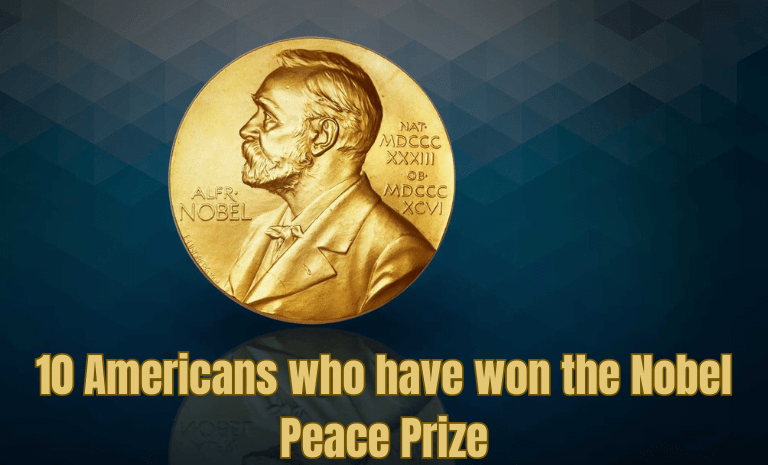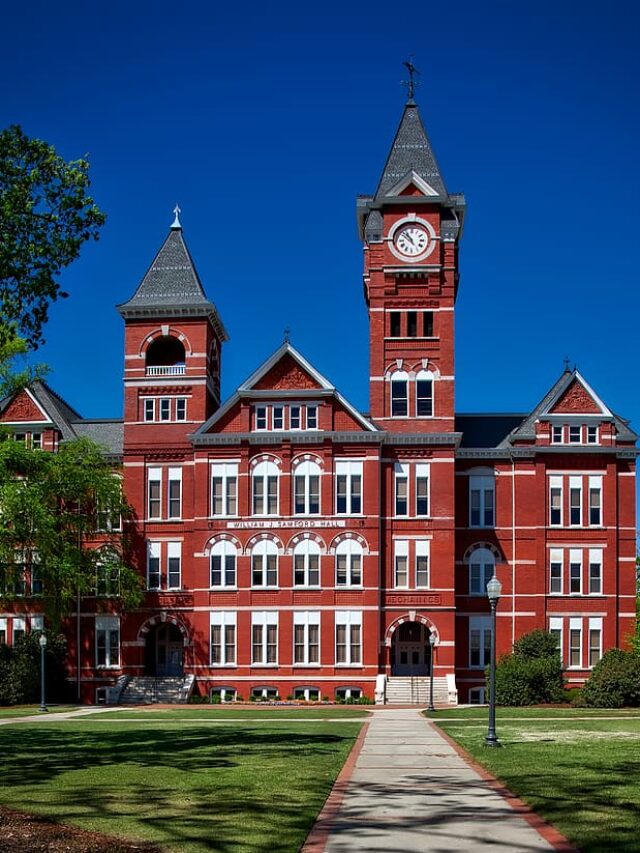The Nobel Peace Prize:10 Americans who have won the Nobel Peace Prize: Introduction: The Nobel Peace Prize is one of the most prestigious awards that is bestowed upon individuals or organizations who have contributed to world peace. Since its inception in 1901, the Nobel Peace Prize has been awarded to 10 American citizens who have made significant contributions towards peace-building efforts around the world. In this article, we will discuss the 10 Americans who have won the Nobel Peace Prize and their contributions towards peace-building.

Henry Dunant(1901)
Henry Dunant was a Swiss businessman who is best known for founding the International Red Cross and inspiring the creation of the Geneva Conventions. For his humanitarian efforts, Dunant was awarded the first Nobel Peace Prize in 1901, along with Frédéric Passy, a French pacifist.
Dunant was born in Geneva, Switzerland in 1828, into a wealthy family. He received a good education, and went on to work for his family’s banking business. However, it was not until he witnessed the suffering of wounded soldiers during the Battle of Solferino in 1859 that Dunant’s life changed forever.
After the battle, Dunant was appalled by the lack of medical care available to the wounded. He spent the next few days working tirelessly to provide basic care for the soldiers, using his own resources to buy food and medical supplies. This experience led Dunant to write a book called “A Memory of Solferino,” in which he outlined his vision for an organization that would provide medical assistance to wounded soldiers, regardless of which side they were fighting for.
Read this
- Culture of the United States:10 Things to Know About U.S. Culture
- US Education policy-History, Current State and Potential Future Directions of US Education Policy
- Top 10 universities in the United States, according to the U.S. News & World Report’s 2022
Theodore Roosevelt (1906)
Theodore Roosevelt, the 26th President of the United States, won the Nobel Peace Prize in 1906 for his efforts to end the Russo-Japanese War. Roosevelt played an instrumental role in bringing both the countries to the negotiating table and mediating a peace agreement between them. His efforts were widely recognized and appreciated, and he became the first American to win the Nobel Peace Prize.
Theodore Roosevelt, the 26th President of the United States, was awarded the Nobel Peace Prize in 1906 for his role in ending the Russo-Japanese War. His efforts to broker a peace agreement between the two countries earned him international recognition and cemented his legacy as a peacemaker.
At the turn of the 20th century, tensions between Russia and Japan had been escalating for years, with both countries vying for dominance in East Asia. In 1904, the two nations went to war, with Japan emerging as the victor in a series of bloody battles. However, despite their military success, Japan was unable to force Russia to sign a peace treaty, and the conflict dragged on.
Enter Theodore Roosevelt. As President of the United States, Roosevelt was determined to play a role in ending the war and bringing about a peaceful resolution. He recognized that a protracted conflict in Asia could have disastrous consequences for the global balance of power, and he believed that the United States had a duty to help broker a peace agreement.
Roosevelt’s first step was to invite representatives from both Russia and Japan to a peace conference in Portsmouth, New Hampshire. Over the course of several weeks, he met with the two sides separately, laying out his vision for a peace treaty that would satisfy both parties. He pushed them to compromise on issues such as territorial control and indemnities, and he urged them to put aside their pride and work towards a common goal.
At times, the negotiations were tense and difficult. Both sides were wary of making concessions, and there were moments when it seemed as though the talks might break down. However, Roosevelt remained steadfast in his determination to find a solution, and he continued to push both sides towards an agreement.
Finally, on September 5, 1905, the Treaty of Portsmouth was signed, bringing an end to the Russo-Japanese War. The treaty granted Japan control over Korea and certain parts of Manchuria, while Russia was allowed to retain its strategic port of Vladivostok. In addition, Russia was required to pay Japan a substantial indemnity for damages caused by the war.
Woodrow Wilson (1919)
Woodrow Wilson, the 28th President of the United States, won the Nobel Peace Prize in 1919 for his efforts to establish the League of Nations. The League of Nations was a precursor to the United Nations and aimed to promote international cooperation and prevent future conflicts.

Jane Addams (1931)
Jane Addams, a social worker and activist, won the Nobel Peace Prize in 1931 for her efforts towards international peace and social justice. Addams co-founded the Women’s International League for Peace and Freedom, an organization that aimed to promote disarmament and prevent war.
Ralph Bunche(1950)
A Nobel Peace Prize Laureate Who Paved the Way for Racial Equality
Ralph Johnson Bunche, born in Detroit, Michigan, in 1903, was an African American political scientist and diplomat who dedicated his life to the pursuit of social justice and equality. Bunche made a significant impact in the field of international relations, and his efforts were recognized with the Nobel Peace Prize in 1950, becoming the first African American to receive the prestigious award.
Bunche’s childhood was far from easy. His father passed away when he was young, leaving his mother to support the family on her own. Despite these difficulties, Bunche was an exceptional student and eventually earned a scholarship to study at UCLA, where he earned his undergraduate degree in international relations.
After earning his Ph.D. from Harvard University, Bunche went on to become a professor of political science at Howard University in Washington, D.C. During this time, he began his involvement with the United Nations, serving as a consultant on colonial affairs.
Bunche’s work with the UN eventually led him to Palestine, where he played a crucial role in negotiating the 1949 armistice agreement between Israel and its Arab neighbors. This achievement earned him the Nobel Peace Prize, making him the first African American to receive the award.
George C. Marshall (1953)
George C. Marshall, the U.S. Secretary of State, won the Nobel Peace Prize in 1953 for his contributions towards the Marshall Plan. The Marshall Plan was an initiative aimed at rebuilding Europe after World War II and promoting economic stability and growth.
Linus Pauling(1962)
Linus Pauling was a renowned scientist, activist, and humanitarian who made significant contributions to the field of chemistry and played a vital role in promoting world peace. He was awarded the Nobel Peace Prize in 1962 for his tireless efforts to promote nuclear disarmament and world peace.
Born in 1901 in Portland, Oregon, Linus Pauling showed an early aptitude for science, and he went on to study chemistry at the California Institute of Technology (Caltech). He earned his Ph.D. in physical chemistry in 1925, and after a brief stint as a professor at Caltech, he moved to Europe to work with some of the most prominent chemists of the time.
Pauling’s work on the nature of chemical bonding was groundbreaking, and he developed a theory that explained the formation of chemical bonds in terms of the sharing of electrons between atoms. This theory, known as the valence bond theory, helped to establish the field of molecular biology and remains a cornerstone of chemistry today.
Martin Luther King Jr. (1964)
Martin Luther King Jr., a civil rights activist and leader, won the Nobel Peace Prize in 1964 for his efforts towards racial equality and justice. King led the American civil rights movement and advocated for non-violent protests and civil disobedience.
Jimmy Carter (2002)
Jimmy Carter, the 39th President of the United States, won the Nobel Peace Prize in 2002 for his efforts towards international peace and conflict resolution. Carter has been involved in numerous peace-building initiatives and has worked towards promoting democracy and human rights.
Al Gore (2007)
Al Gore, the former Vice President of the United States, won the Nobel Peace Prize in 2007 for his efforts towards raising awareness about climate change. Gore has been a prominent advocate for environmental issues and has worked towards promoting sustainable development.









































